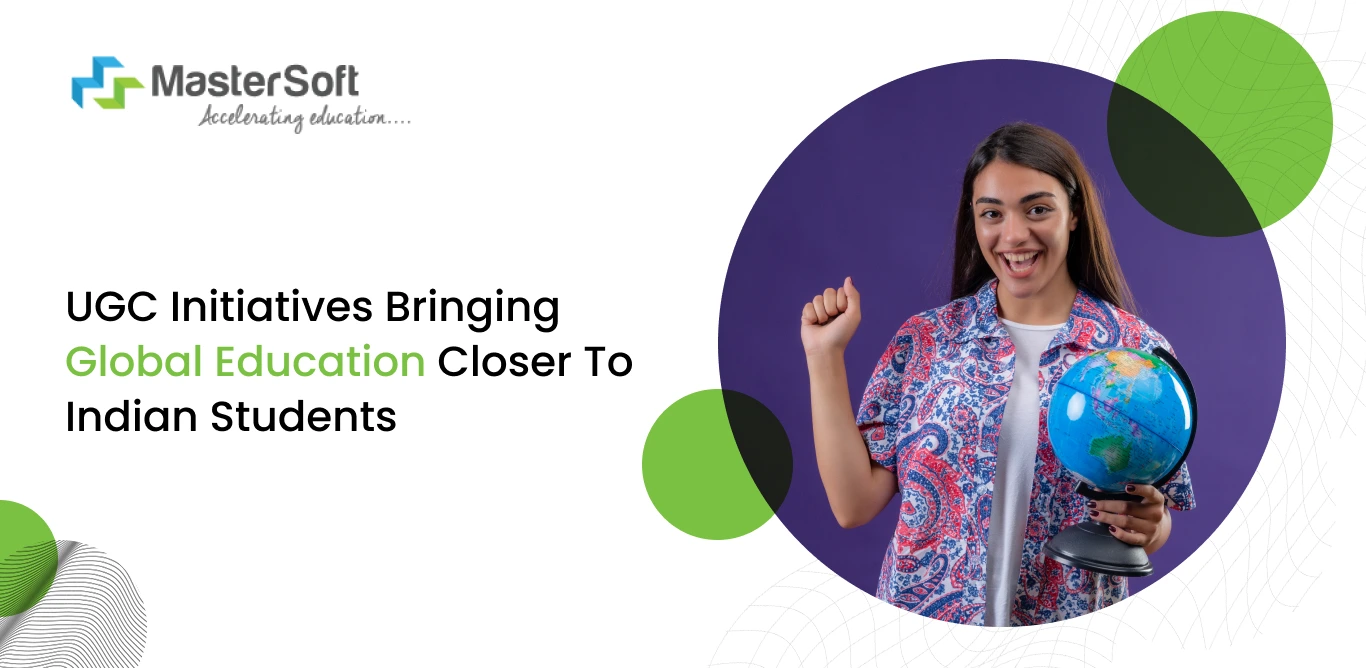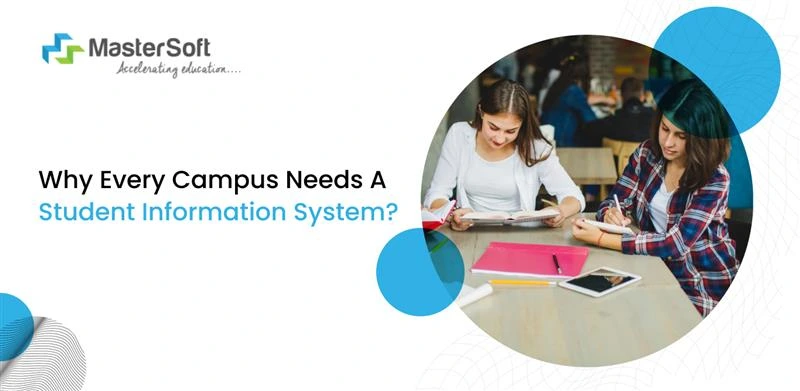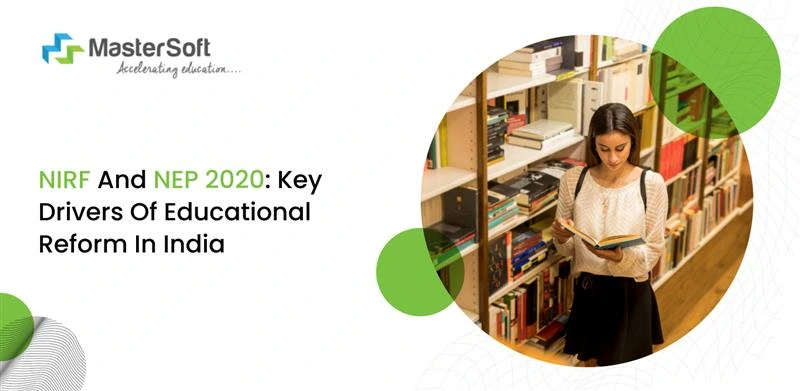10, Feb 2025
The University Grants Commission has played a key role in transforming India’s higher education system by introducing significant initiatives in recent years. These initiatives are aligned with the NEP 2020 and aim to bridge the gap between Indian students and global education opportunities.
The commission’s efforts have been instrumental in establishing a dynamic learning environment with increased international collaborations. In effect, students get easy access and exposure to great opportunities, helping to equip themselves with varied knowledge and skills.
Let’s take a look at some notable UGC initiatives that have been developed to provide holistic education and make students future-ready.
Global Citizenship Education (GCED)
Global Citizenship Education refers to an educational framework that aims to educate students with the skills and knowledge essential to participate fully in a globalised economy and society. It relates to an approach that helps learners recognise the significance of understanding and resolving global issues across social, political, economic, cultural, and environmental dimensions.
GCED equally emphasises inculcating deep-rooted knowledge of multiple issues and universal values such as justice, equality, dignity, and respect. It highlights the improvement of cognitive skills, enabling students to think critically and systematically. Consequently, students would gain a multi-perspective approach that recognises different perspectives, dimensions, and aspects of issues.
On the other hand, non-cognitive skills are important as well, as they equip individuals with social skills like conflict resolution, empathy, and communication skills. These skills enable them to interact with people of different backgrounds and perspectives.
Some of the major themes associated with GCED are as follows:
- Cultural diversity and tolerance
- Global governance systems, structure, and issues
- Gender equality
- Human Rights Education
- Peace and non-violence
- Combating climate change and its impact
- Environmental sustainability
UGC has recommended that higher educational institutes (universities and colleges) integrate GCED into existing subjects like literature, science, law, education, etc. Simultaneously, they can opt to introduce the framework as a separate subject or activity within transdisciplinary courses and degrees.
International Twinning Programs
Joint degrees, dual degrees, or twinning programs are innovative initiatives in collaboration with foreign universities. These programs allow students to pursue the initial part of a particular course in India, wherein they gain foundational knowledge and get accustomed to academic rigour.
They complete the program’s latter part abroad, allowing them to engage in different academic environments with specialised courses and advanced infrastructure. The credit transfer mechanism ensures a smooth transition between the two institutes.
One of the primary benefits of participating in such programs is the overall cost reduction of studying abroad while gaining exposure to diverse academic resources. On the other hand, various teaching methodologies, multicultural experiences, and peer networks broaden their horizons, preparing them to thrive in varied career fields.
UGC To Introduce Binary Accreditation System In NAAC
Virtual Learning Platforms
E-learning, or online education, has moved beyond the stage of an alternative learning medium and has become a part of the mainstream academic system. Therefore, the University Grants Commission acknowledges the impact of online learning and promotes e-learning initiatives.
For example, SWAYAM (Study Webs of Active Learning for Young Aspiring Minds) is a significant initiative that includes courses from different disciplines. Experts and academicians have designed over 2000 courses across various subjects such as humanities, social sciences, management, law, engineering, etc.
Furthermore, it features school-level courses (Grades 9 to 12), higher education courses, and post-graduate courses. Comprehensive learning materials such as online reading materials, video lectures, self-assessment quizzes, and discussion forums.
On the other hand, UGC promotes collaborations with leading global online education providers, allowing students to earn credentials from renowned international universities. In addition, a noteworthy initiative is the Virtual Labs project, which allows students to access advanced simulation tools and experimentation facilities.
Besides, the organisation urges educational institutes to leverage ed-tech tools like learning management systems and student information systems to improve educational and administrative activities. Also, these solutions help to make education more accessible and inclusive and address varying student requirements.
Promoting Foreign Language Learning
Multilingualism is one of the important elements that has been highlighted by NEP 2020; therefore, UGC has emphasised foreign language learning. Being proficient in more than one language, along with relevant skills and knowledge, increases the chances of securing jobs across the world.
UGC urges higher educational institutes to include foreign languages such as French, German, Japanese, Chinese, Spanish, Russian, Korean, Arabic, etc., in undergraduate and postgraduate programs. Short-term certificate/diploma programs and full-fledged degree courses in foreign languages can also be viable options for students.
Likewise, collaborations between international and Indian institutions can lead to foreign language programs. For instance, student exchange programs and joint language courses are particularly beneficial for students to learn their preferred languages.
Moreover, when universities conduct events such as cultural fests, foreign language weeks, and exchange programs, it enables students to experience different cultural and linguistic dimensions.
International Faculty Exchange
International faculty exchange programs are key to improving the higher education quality in India as they lead to global collaboration. It promotes the exchange of instructional methods, knowledge, and research and development practices and a host of other advantages like:
- Update and improve curricula by integrating global perspectives.
- Collaborative research leads to innovation and multidisciplinary studies.
- Communication and guidance of international faculties enable students to gain insights into emerging trends, in-demand skills, research work in various fields, etc.
- Institutes hosting international faculty attain higher rankings and global accreditations and attract talented students and researchers.
Initiatives such as GIAN (Global Initiative for Academic Networks) invite international faculty to Indian universities for short-term teaching and research activities. Likewise, SPARC (Scheme for Promotion of Academic and Research Collaboration) refers to long-term associations between Indian and foreign institutions.
UGC To Allow Foreign Higher Education Institutes To Set-Up Campus In India
Scholarship and Funding Opportunities
UGC recognises that financial constraint is a leading cause behind students discontinuing their education or dropping out. Therefore, it has expanded the scholarship and funding opportunities, making education affordable and accessible to students of diverse socio-economic backgrounds. Some of the noteworthy scholarships are as follows:
UGC National Fellowship for Scheduled Castes Students
This scholarship aims to provide financial assistance to Scheduled Caste students who are pursuing higher education at the M.Phil and PhD levels. It covers the living expenses and academic fees and includes a monthly fellowship.
UGC Single Girl Child Scholarship
This scholarship aims to support female students who are the family’s only child and pursuing higher education.
UGC Junior Research Fellowship (JRF) and Senior Research Fellowship (SRF)
Candidates pursuing research in various academic fields who have qualified in UGC-NET or CSIR-NET are eligible for JRF. SRF recipients are individuals who have completed their M.Phil. and have received JRF for two years.
Final Words
UGC’s strategic initiatives are significant for enhancing the future of the Indian education system as they put equal focus on accessibility, equitable opportunities, and quality. The commission’s organised programs have opened up new avenues for exploring global education. Despite the prevalent challenges, the commission strives to empower Indian colleges and universities to facilitate top-notch education and bring global education to students.
Simplify your faculty hiring process with MasterSoft’s faculty management system.
Mobile: 08448010216
Email: janki.somani@iitms.co.in













